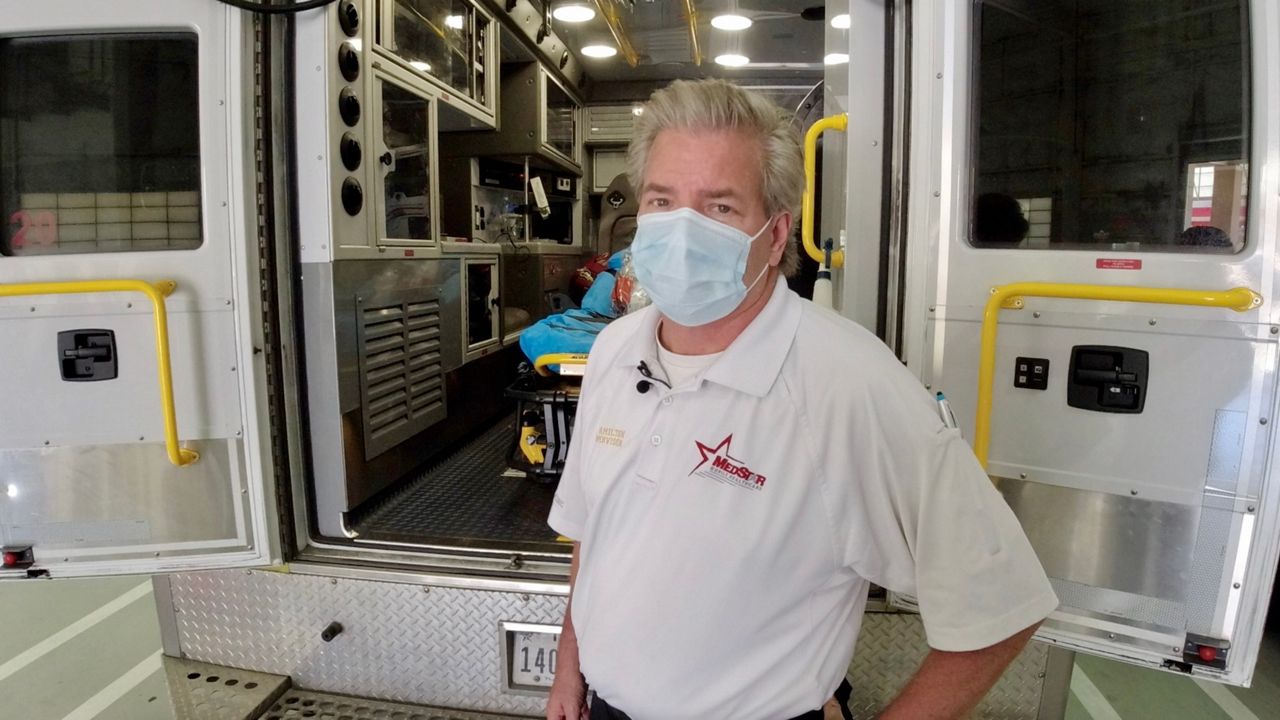FORT WORTH, Texas — North Texas could be on the way to record breaking COVID-19 hospitalizations in the next two weeks, according to health officials.
In the latest UT Southwestern Medical Center COVID-19 Forecast, published this week, experts predict "dramatically high" numbers of hospitalizations by September 9. According to the report, there could be as many as 1500 hospitalizations in Dallas County by that date and 1700 in Tarrant County. Those numbers would break previous records set earlier in the pandemic.
The report notes that renewed masking by many is helping the cause, but the authors predict that without immediate improvement to vaccination rates, the grim numbers could come true. That forecast concerns local first responders who are already making some tough decisions as a result of the surging delta variant.
“Where as we might, on a typical day run six to eight calls in a 12 hour period [per crew], we’re running now 10 and probably 12 calls in a shift,” said John Hamilton, an EMT field supervisor with MedStar in Fort Worth. “COVID has a lot to do with it.”
Leaders at MedStar have seen COVID-related calls resurge after hitting a low in the early months of summer. Now as a result, Hamilton said they’re asking some of those COVID patients to stay home.
“Unfortunately, if you’re a stable patient, we will not transport you to the hospital with COVID symptoms,” said Hamilton.
In a news release Tuesday, MedStar leaders said it's part of a special COVID protocol where its EMTs don’t transport COVID patients to the hospital, if they’re considered clinically stable. Earlier in the summer, MedStar was only utilizing that protocol on about one patient every three days, but now it's averaging nine uses per day. There’s no space at local hospitals, nor can those facilities risk spreading the illness further.
Hamilton said some patients have not been happy with simply being provided COVID education and being asked to stay in bed and consult their doctor rather than get a ride to the ER, but he said it’s currently the best path forward.
“In our business... we are here to help people, but sometimes the way we have to help people is to say, 'No, we can’t take you,'” he said.



